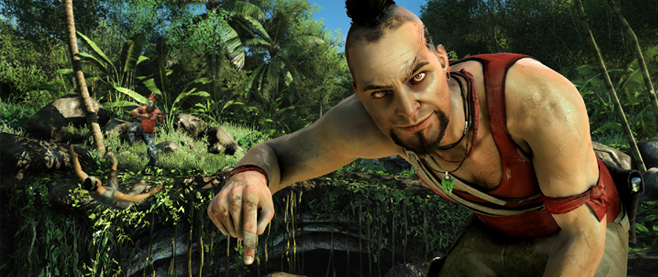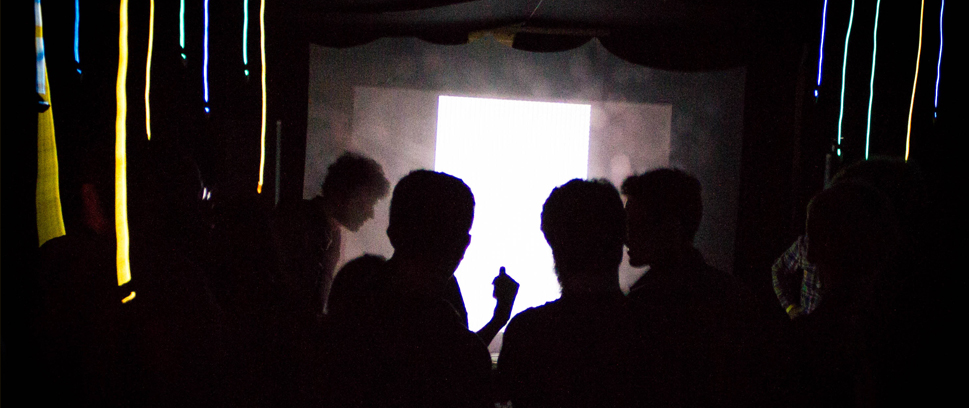
You Forgot it, Videogame People: A Savage Journey into the Heart of GDC
Three months ago, I moved to Los Angeles from Chicago after 30 years there. It was my hometown. Davis quit his job in social media in December and wants to move closer to his hometown to start a family and an arcade in Austin (he’s from Dallas).
Obviously, the best way for us to get our shit together was head up to GDC. I’d be covering for a couple of different publications (this piece was not pitched nor even intended before we came out) and my games-enthusiast pal would be around games-enthusiast people. He’d get some feedback on his future business, I’d get a dozen bucks or so to write about videogames for a few places. I’d have some meetings, get some good stories out of it and, of course, we’d see some great games. Everyone wins. Right?
[pullquote]I’ve never been in the presence of so many people trying to cram into the same room to simulate the feelings of being somewhere else.[/pullquote]
I’m, I guess, a “veteran” of the games-writing scene if only because I haven’t taken the usual detours many of my colleagues have. I don’t want to work for a developer. I don’t want to get into game publishing. I used to feel like I was done writing about games because the pay is shit, most editors are morons and everyone wants to just shift those SKUs, man.
I wasn’t expecting a lot from GDC.
I went, largely, to bring a friend and continue this period of career expansion and personal exploration that brought me to Los Angeles in the first place. Not that I think any of that is particularly interesting in and of itself – lots of people move – but bringing my friend was my way of using my experience as some sort of Robin Hood-like sharing of my credentials. To bring him backstage with my press pass. He was my photographer, but really just there to get in front of people to talk up his arcade idea (which, legitimately, is cool).
This was Davis’ first GDC.
This is a guy who, unlike me, continues to read each and every stray games blog that finds new and inventive ways to re-word press releases. A guy who has strong opinions about what PS4 games to buy. A guy who wants to build an arcade in another state. A guy whose unending love of games inspired me to start a little bucket-list reviews podcast with him back in January. Through his eyes and that tiny 20-minute biweekly show, I was starting to remember that although I was running out of love for the industry, I still had a lot of love for the stuff ostensibly at its center: games.
This GDC, and having Davis there with me, taught me that I still have a hell of a lot left to say about games. I wasn’t expecting that.
We’re in a mushy state of post-conference consciousness. We’re craters. What you read is the product of a week of panels, talks, alcohol, crashing on friends’ couches and lots of long-winded conversations with people we know very well, people met for the first time, many we haven’t seen before, and maybe a few we hope to never see again as long as we live.
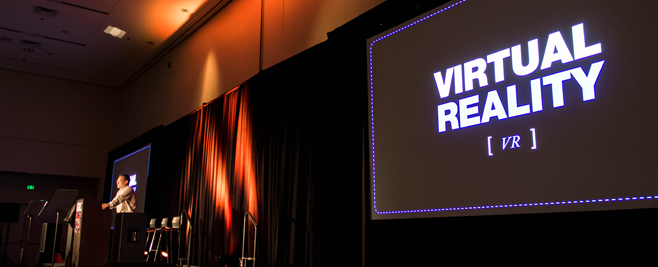
David: What’d you think of GDC? You kept saying, “It’s like the Internet is leaking in here.”
Davis: I think I just experienced a weeklong exercise in brand-sponsored controlled chaos, complete with actual talking people replacing Twitter avatars. Developers hawking their latest creations, hardware and middleware companies demonstrating how awesome they were at things I could hardly understand and, above all else: VR, VR, VR and also more VR. I’ve never been in the presence of so many people trying to cram into the same room to simulate the feelings of being somewhere else.
I’m talking both about the act of escaping into virtual reality, and also being stuck in social situations when you can’t politely just walk away. In the midst of that, though, there was a genuine excitement about the future of where this industry might be headed, for better or worse. The Xbox One and PS4 effectively broke what had been the normal product cycle – they took longer to come out and now suddenly here’s something new to change stuff up more. Nobody seemed particularly excited about X title coming to whichever of the newer consoles, but only about the possibilities of new ways to interact with games.
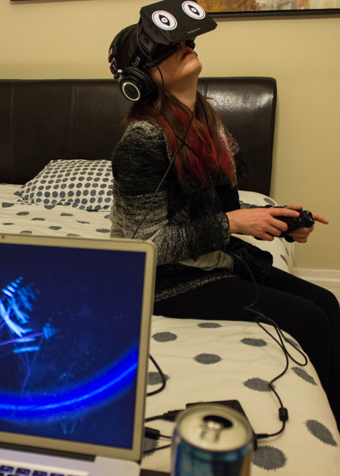 David: Yeah, a lot of people had asked me whether I’d see the Oculus Rift up here and I sort of shrugged it off. I hadn’t expected to see so much of it everywhere, to try it multiple times, and to also end up covering Sony’s “surprise” announcement that it was entering that market. I also hadn’t expected it to have such a profound effect on me, in all seriousness. Virtual reality is no longer a thing of science fiction; it is now a thing of science non-fiction. It is actual reality.
David: Yeah, a lot of people had asked me whether I’d see the Oculus Rift up here and I sort of shrugged it off. I hadn’t expected to see so much of it everywhere, to try it multiple times, and to also end up covering Sony’s “surprise” announcement that it was entering that market. I also hadn’t expected it to have such a profound effect on me, in all seriousness. Virtual reality is no longer a thing of science fiction; it is now a thing of science non-fiction. It is actual reality.
It’s like a hit of some strange drug. It scares me. It fascinates me. I want an Oculus Rift. I fear for what might happen if I own one and have access to it whenever I want. Maybe it’s best to have to wait in line to anticipate it rather than slide on your sweat pants, slide on your helmet, and nod off and check out. I know you thought I might’ve been overreacting to the whole thing, though, too.
Davis: Yeah, there’s an underlying dark side to those chunky black ski-goggles from the future: If we’re already so stuck on staring at glowing screens, what happens when we’re blocking out every other sense of periphery?
David: It’s no different from how we check out in our day-to-day. We’re glued to our smart phones. At night, we’ll dick around on the Internet for hours and hours long after we should’ve gone to sleep, just to create the illusion that we have free time. This is a warmer embrace of that fact, because our homes long ago turned into digital opium dens. I heard a rumor from a Rock Paper Shotgun writer that Sony is going to unveil The Matrix at E3 2016, and the big reveal is that we’ve been in it the whole time.
Davis: Even without all the whiz-bang tech on display, there was a lot to remind me why this stuff is genuinely interesting, from the Venus Patrol/Wild Rumpus party (pitch-black glitchy co-op games + muscle cats + DJs waving Lethal Enforcers pistols = actually a pretty awesome time) to Unwinnable’s Kickstarter launch and subsequent salon event, which was worth attending just to get my mitts on Hyper Light Drifter for a few seconds. Also, I know kung fu.

David: Very insightful, Keanu. Though you speak the truth – I’ve felt videogames (and the videogames media) has been getting more and more homogenous. VR might have spooked the shit out of me, but it is interesting. That’s more than I can say about anything coming out of a developer, publisher or media outlet in a long, long time. It’s a bit like where we are in our lives: uncertain futures, lots of potential. Maybe that’s skewing how we’re viewing GDC, but being out among the people seeing what was on display, it was hard not to feel something bubbling up out there. This stuff has wider implications than mere product specs: We are strapping our faces into goggles that take us into another reality. That’s weird. Acting like it isn’t is even weirder.
Davis: It seemed fitting that the last panel I was able to see wound up being the most insightful and exciting about the future of this industry, Curating Video Game Culture: The New Wave of Video Game Events, focusing on how to draw in people beyond the traditional methods we’ve all become so used to. After seeing a talk about Republique’s uber-simplified 1-finger control scheme and the emergence of arcades, maybe we’re just heading towards 1989 again. Maybe we’re replacing Fred Savage and bad poofy hair with Brian Crecente’s hair and quirky regrettable hats (seriously: how many fedoras/top hats can one convention hold?).
David: Yeah, I remember asking you whether we’re ultimately just clawing back towards two-button controllers after all these years. What is a smartphone but a two-button controller (the screen itself, and the main button)?
But it’s funny you bring up the ‘80s because I’ve been having a lot of conversations about punk rock and how its spirit is something that’s sorely needed in the games industry. The attitude of “Fuck it, let’s do something,” rather than, “How do we think this will do on Metacritic?” Caution is offensive. You stop yourself from saying anything, and when you cut yourself off from saying anything, you end up saying nothing. Nothing is boring. The start of something is interesting. It’s potential. What I felt this week was a punk-rock vibe nowhere near the Moscone Center but rather in faraway pockets waiting to get discovered.
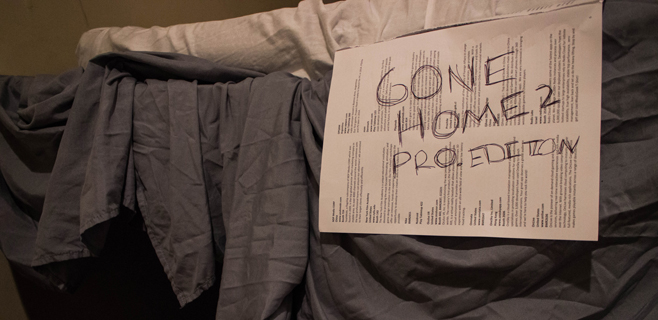
We accidentally discovered our favorite game of GDC not by trolling the booths but by stumbling through the line at DNA Pizza and striking up a conversation. This guy, Hugh Monahan of Stellar Jockeys, hadn’t ponied up the cash to rent space in the hall but instead was floating around showing his game to anyone who’s interested.
We bumped into him on two consecutive nights. I never told him I was a writer. You might’ve told him you were a hopeful arcade owner. But he never told me he was a developer. We were just cool dudes bonding randomly and embracing that fact. On our third encounter, he whipped out his laptop and showed us his game, Brigador. Before he finished his demo, I had pitched a preview to my editor at Kill Screen and got it greenlit. It hits Steam “this summer” and is absolutely worth keeping tabs on. I didn’t get a press release about it. I didn’t get a card. I met someone organically and got something cool out of it. It’s the sort of game that wouldn’t sound fascinating in a press release (it’s an isometric mech roguelike) but you had to see to fully grasp. It’s the sort of thing that happens more rarely these days. Right? You’re a social-media PR guy. Am I imagining we’re actually that isolated in the media?
Davis: If it sounds like we’re being overly enthusiastic, an entire table of fellow journalists had crowded around Hugh’s laptop by the time he’d finished his schpiel. As far as viewing this week through the PR-guy lens, meeting up with Hugh is an awesome opportunity and illustrates the fine line that the “indie” movement is teetering on: Are “indie” studios required to hire PR agencies to break through the noise and get eyeballs, and if so, how does that really differentiate from AAA studios? Is it really that “indie” to have year-end award shows presented on huge screens to thousands of people? I think it’s phenomenal that the kind of games I personally enjoy – personal, odd, artful, and insightful stories – are winning, but at the same time, I hope we’re not hitting a 1991 “The Year That Punk Broke” level of corporate me-too-ness. Basically, I’m just saying that nobody should let Geffen publish their retro-themed platformer.
David: I guess, but what’s the difference between Irrational and Geffen? Irrational crumbled; Geffen marches on. The music industry is bulletproof in a way the games industry will never be.
Davis: Is it though? The games industry regularly outsells the entire music industry (sometimes with a single title).
David: Maybe I think that because the music industry has been around so much longer than the games industry. Which goes to another dumb oft-had conversation we had this week: Are games art? Last night we discussed this with my friend Miguel Lopez at Wikia and I made the point that games are games and art is art. They are both just forms of communication; cavemen played games and they drew on walls. I don’t think they cared about what to call stuff, they just did as they wished and were glad not to be eaten by dinosaurs 6,000 years ago. This self-consciousness in games – what can indies do? – is ultimately stupid and harms the industry. There are voices in our cave distorting the conversation, confusing us into debating points that are all moot. Miguel brought up Michael Thomsen’s finger-wagging 2012 review of Dark Souls – one of his favorite series – where he eviscerates the game and demonstrates his disdain for the medium by rattling off all the other things you could do with the requisite 100 hours to ostensibly beat that grueling title. His argument is predicated on false footing because inherently all that comes to mind as he’s writing is you could be doing anything else other than reading his review. (He also twists the intention of an old review I wrote of that game, which is also bizarre to read.)
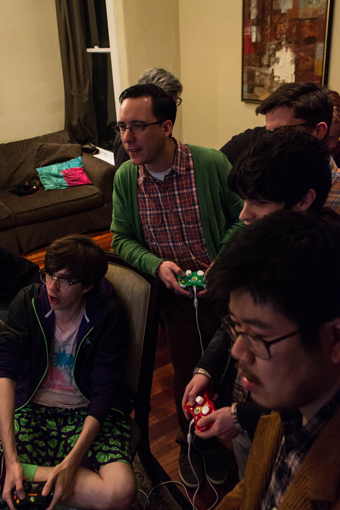 I felt a similar disdain for the games industry from some of my former colleagues at some of the publications I used to write for or walked away from a while back. This week, I had news editors confide in me that they hoped no real news would come out of GDC. They were just there for the parties. They weren’t there for the games. But then, how can we claim to be any better if we think the most interesting stuff around games weren’t happening on the show floor? Where do I get off bringing an “outsider” into an industry event and then slinging arrows at it? Aren’t there millions of other more productive things we could be doing like Thomsen prescribes?
I felt a similar disdain for the games industry from some of my former colleagues at some of the publications I used to write for or walked away from a while back. This week, I had news editors confide in me that they hoped no real news would come out of GDC. They were just there for the parties. They weren’t there for the games. But then, how can we claim to be any better if we think the most interesting stuff around games weren’t happening on the show floor? Where do I get off bringing an “outsider” into an industry event and then slinging arrows at it? Aren’t there millions of other more productive things we could be doing like Thomsen prescribes?
Davis: Isn’t that the very definition of a straw man argument? Saying that a game is lackluster by the very idea that you could spend more time doing other things is inherently flawed – that could apply to anything. But that’s another story.
David: The answer to that question for this rambling piece’s intent, I think, lies in the intent of another of my old colleagues/editors, Jason Killingsworth (I was with him at Paste, and then at Edge, and wish him the best at Riot Games). Jason wrote a rebuttal for Edge to Thomsen’s “various resentments that piled up during [Thomsen’s] tour of fantasy-RPG epic Dark Souls.” Jason writes:
Mounting an assault on a person’s motives is, of course, a cowardly tactic, as there’s no tangible proof any writer can offer to confirm otherwise… And like a lawyer attempting to smear a witness’s character, these anonymous plebeians seek only to discredit, not meaningfully interrogate.
Thomsen’s Dark Souls essay warrants a far more exacting response. After all, nobody aspires to squander their life on a frivolous hobby. We must decide if the innumerable hours we spend playing games amount to – allow me to borrow Robert Ashley’s inspired phrasing – a life well wasted. If not, we’re just raking them into a pile like dry leaves and burning them to cinder. Dark Souls is not a concise game, and I hope you’ll forgive the fact that this is not a concise piece of writing.
As such, this is not a concise piece. We are spending our 100 hours searching for an answer to an existential itch on par with that of your standard scratchy unwanted holiday sweater.
Asking why we itch is like asking why the sky exists. We are but small creatures in a massive world. That is life, that is a videogame. It’s Zelda. It’s Shadow of the Colossus. The threshold of virtual reality has me taking off my own regular-reality goggles and looking around at the games industry with a renewed sense of…something. I’m not sure what, yet. That’s why we wrote this. There’s something new going on, and it isn’t about products or panels – just human curiosity trained on whatever else is possible. And this is all your fault, Davis, because I was just trying to help you shill your stupid arcade. I guess I’ll have to resume writing about games again. But for now, I’m fucking going to sleep and gonna try to regain my humanity.
———
GDC Stuff Acquired:
1 T-shirt designed by Keita Takahashi
2 coffee mugs with social media logos (illegitimately acquired)
2 mangas about Hitler
1 thrift-store circuitboard that “looks pretty”
1 Uniqlo hoody (San Francisco is cold and we are wusses)
1 plastic statuette of a year-old game character
1 stack of 3.5” old dusty floppies
1 USB 3.5” floppy drive (in which to read old, dusty floppies)
1 prescription-strength something something
1 pile of promotional fliers (80 percent discarded before leaving)
1 gigantic stack of business cards for people we need to email
Hangovers (multiple)
———
Follow David on Twitter @davidwolinsky, where he is 10% more coherent. Follow Davis on Twitter @dontstaylong, where he is 10% more inspiring. And while you’re at it, listen to the Electric Cybercast II: Online podcast. All photos by Davis Cox.



